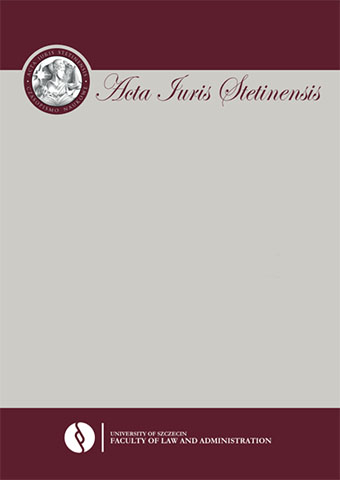







| Authors: |
Elżbieta
Małecka

Akademia Humanistyczno-Ekonomiczna w Łodzi |
| Keywords: | Polish Railway Sector COVID-19 President of the Office of Rail Transport Covid Acts |
| Data publikacji całości: | 2021 |
| Page range: | 15 (75-89) |
| Downloads ?: | 521 |
| 1. | Antonowicz M., Czynniki rozwoju przewozów intermodalnych w Polsce, „Studia i Prace Kolegium Zarządzania i Finansów” 2018, nr 170. |
| 2. | Jaworska K., Nowacki G., Transport kolejowy w systemie logistycznym Polski, „Technika Transportu Szynowego” 2019, nr 4. |
| 3. | Madrjas J., Tarcza dla kolei w Sejmie. Rząd wesprze przewoźników, 29.04.2020, www.rynek-kolejowy.pl/wiadomosci/tarcza-dla-kolei-w-sejmie-rzad-wepsrzeprzewoznikow-96479.html. |
| 4. | Mańkowska M., Mańkowski T., Możliwości integracji transportu kolejowego i lotniczego na przykładzie portu lotniczego Szczecin-Goleniów, „Zeszyty Naukowe Uniwersytetu Szczecińskiego nr 778. Problemy Transportu i Logistyki” 2013, nr 22. |
| 5. | Miedzińska I., Wpływ stanu epidemii ogłoszonego z powodu COVID-19 na postępowania administracyjne przed Prezesem Urzędu Transportu Kolejowego, w: Urząd Transportu Kolejowego, Magazyn Kultury Bezpieczeństwa, Warszawa 2020. |
| 6. | Mindur L., Gąsior M., Przewozy intermodalne, „Technika Transportu Szynowego” 2003, nr 6. |
| 7. | Poliński J., Ochociński K., Cyfryzacja w transporcie kolejowym, „Problemy Kolejnictwa” 2020, nr 188. |
| 8. | Salomon A., Transport intermodalny z punktu widzenia spedycyjnego, „Prace Wydziału Nawigacyjnego Akademii Morskiej w Gdyni” 2013, nr 28. |